8 Thanksgiving Day Health Hazards and How to Prevent Them
A Yale ER doctor reveals all the many ways she sees people get hurt over the holidays.
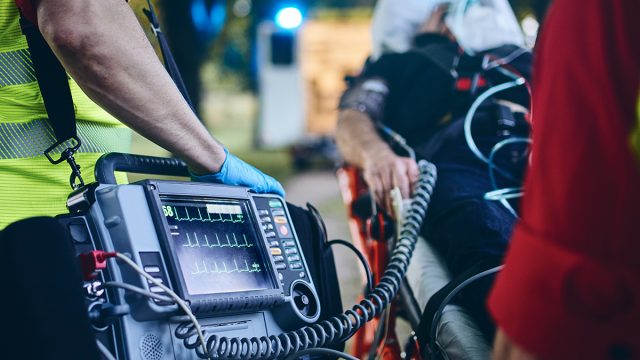
Fun fact: Emergency rooms are busier during the holidays – including Thanksgiving – than most other days. From having too many cooks in the kitchen to the stress of being surrounded by family, there are multiple reasons why injuries, illnesses, and other ailments occur on that one day of the year where the turkey is being passed around the table. Here are the most common Thanksgiving Day health hazards, according to a Yale ER Doctor.
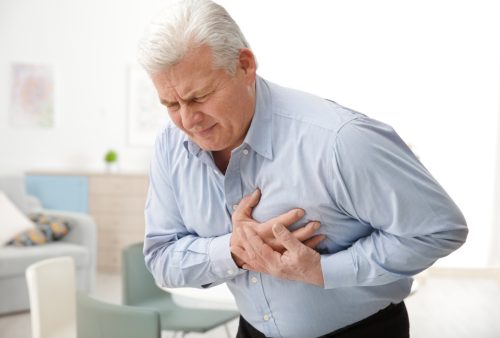
Pooja Agrawal, MD, Yale Medicine emergency medicine specialist and associate professor at Yale School of Medicine, reveals that heart failure is one of the most common Thanksgiving health hazards. "Holiday food is often quite salty and people tend to indulge more than they normally would," she says. "When we eat excess sodium, our body retains more fluid. People with heart problems can't deal with that extra fluid very well so it backs up into their lungs and they have trouble breathing." To avoid ending up in the ER with heart problems, consider preparing lower-sodium dishes, eating smaller portions, and monitoring your sodium intake over the course of the day, she suggests.
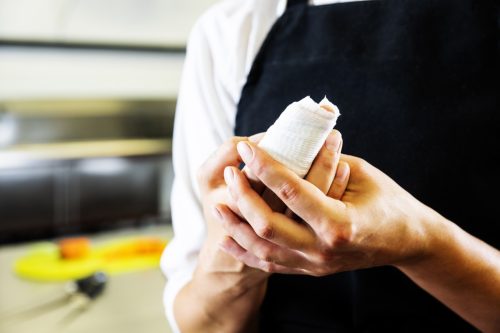
Carve the turkey, not your finger off! While rushing to get a large meal prepared, and using sharp knives to cut meat, vegetables and other food items, it's not uncommon to get distracted or sloppy and accidentally cut fingertips or hands. "Consider slowing down or using a cut resistant knife glove to protect your skin," says Dr. Agrawal.
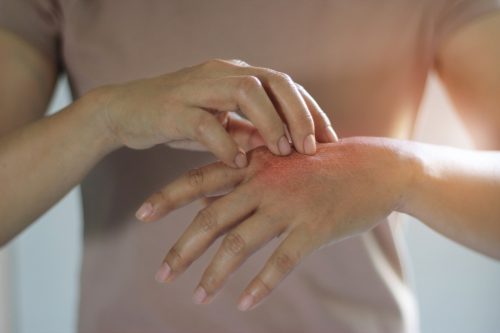
Many people worry more about burning the turkey than themselves. "People are preparing multi-component meals using ovens, deep fryers, and other heating devices, often for larger groups of people. They are often rushing to get everything done in time. When we hurry, we can make little mistakes, which can lead to burns that bring people to the emergency department," Dr. Agrawal says. Keep a fire extinguisher handy and wear oven mitts or other protective gear when handling hot dishes.
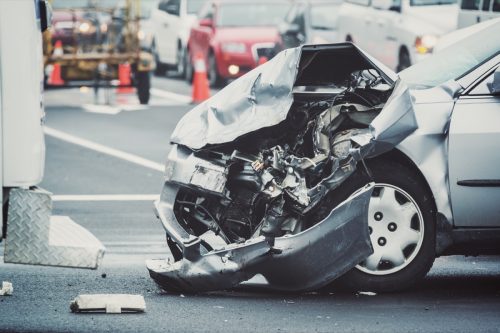
Motor vehicle accidents are common on holidays, including Thanksgiving. "There are more people on the road, driving long distances, sometimes late at night so visibility may not be great, and we may be drowsy. People may be rushing to get to their family or frustrated by crowded roads. This time of year, there's also a potential for poor weather," Dr. Agrawal points out. "Give yourself extra time, take breaks if you get tired, and consider driving at less busy times."

Getting food stuck in the esophagus is another thing that people tend to experience on Turkey Day. "We eat too much, sometimes we don't chew meat thoroughly enough, and when we swallow, it can get stuck in the esophagus. Sometimes people can drink fluids like soda or carbonated water to push it down, but sometimes it just won't go down, and they have to come to the ED to have it removed," she says.
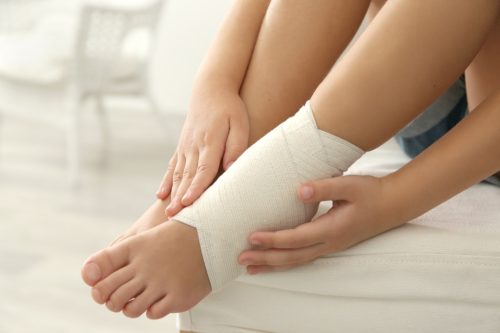
Getting physical after the big turkey meal can result in sprains and strains. "Some families engage in a friendly game of post-dinner football or other physical family activity. Competitive streaks can kick in, which can lead to injuries," Dr. Agrawal says. She recommends stretching before playing, "and taking it slightly easy."
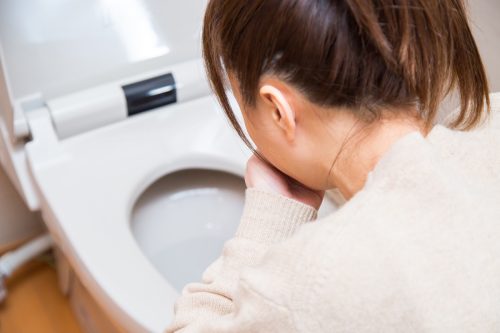
Foodborne illnesses are also common on Thanksgiving. "Eating undercooked meat can lead to foodborne illnesses that cause abdominal cramping, vomiting, and diarrhea," Dr. Agrawal says. "Consider using a meat thermometer to ensure items are prepared properly."

Dr. Agrawal maintains that infections are common, "the week or so after the holiday" so look out for symptoms. "We meet family and friends from different places during the time of the year when there are higher rates of COVID-19, influenza, and RSV, among other spreadable diseases," she points out. "Consider getting the flu vaccine, an updated COVID-19 booster, and RSV vaccine for the very young and older family members. Perhaps postpone your visit if you're not feeling well or are meeting elderly or immunocompromised folks."





















